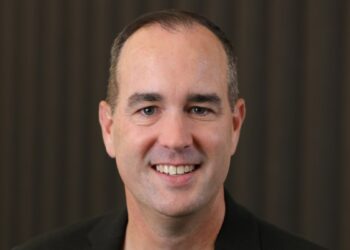Following the landslide victory for the Labor Party on the weekend, the government looks likely to have 28 seats in the Senate while the Greens will have 11, meaning the government does not need the support of crossbenchers to pass the controversial legislation.
Peter Burgess, chief executive of the SMSF Association, said it was now a waiting game to see the final Senate makeup.
“We will need to wait for the composition of the Senate to be finalised, but it is possible the government will only need the support of the Greens in the Senate to pass legislation, including the Division 296 legislation. In the previous Parliament, without opposition support, the government needed the support of the Greens as well as three independents to pass legislation,” he said.
“We will continue to alert the government and the Greens to the consequences of taxing unrealised capital gains and will continue to encourage the government to consult with industry on alternatives.”
Aaron Dunn, chief executive of Smarter SMSF, said the passing of the Div 296 tax now seemed a matter of when, not if.
“The question now is to what extent the Greens want to get anything else. They were pushing for a lower threshold to $2 million, however, it is hard to see how the government would agree to that,” Dunn said.
“But will the government have to give up something else for the passage [of the bill] through the Senate? Ultimately it will be down to negotiation, then it becomes a matter of timing. Previously the legislation was meant to start on 1 July 2025, but now it will be a matter of how much time they are going to give people before its implementation.”
He continued that the government will first have to reintroduce the bill and its passage through the Senate would then be subject to the parliamentary calendar.
“If they wanted to push it through in a matter of weeks, they could because there is no backlog in the Senate. It will depend on what the government now wants to prioritise, based on the promises it made in its campaign,” Dunn said.
He added that the fact that the government had already used the revenue generated from the proposed tax in its budget forecasts could be an indication that it would want it passed into legislation sooner rather than later.
“The government wasn’t interested in talking about the concerns [raised about the tax historically], and even off the back of its campaign it still says it will only affect 0.5 per cent of the Australian population, rather than looking at all the other aspects of the bill,” he said.
“The question really is now that based on all the concerns that have been raised whether they will come to fruition. Will there be a redistribution of money? Will money be taken out (of super) and redeployed? And if it does, will the government now have the mandate to look into how trusts operate as well?”
Meg Heffron, director of Heffron, said, given the results and the fact that the government might only need the support of the Greens in the Senate, it can be assumed the Div 296 tax will become a reality.
“It will be interesting to see what changes or compromises happen from here,” she said.
“There have been many voices calling for a change in method such as one that doesn’t tax unrealised gains. In the last Parliament, concern over that specific design feature on the crossbench was enough to discourage the government from actually putting it to a vote, but I expect that resistance will also be quieter, or at least less of a barrier to the government, in the next Parliament.
“Surely, we will at least see the start date deferred. I can’t imagine a single super fund (small or large), software provider or regulator will be ready to deal with a new method for calculating total super balance by 1 July 2025.”



Saying you will take money out of super to avoid Div 296 is a shortsighted knee jerk reaction, unless you intend to give the proceeds away to your children or charity. Otherwise you will be investing it at personal marginal tax rates up to 47%. Comparison of super vs non is almost impossible with the stupidity of taxing unrealised gains, none the less the consensus is that superannuation will still provide substantial tax concessions vs personal tax rates, albeit a bit reduced.
Besides, if you are couple with up to $6m (2x $3M) with up to $4M with 0% tax on pension accounts and 15% on income from
the remaining $2M, and only 10% on capital gains, most of us would think that’s good enough for you.
Unless you are a US democrat and think the tax revenue is a magic bottomless pit, you should be aware that it is the rest of us taxpayers that are funding your tax concessions. If you have more than $6M between the two of you, giving some back isn’t such a bad thing.
I have been working in SMSF space for 3 decades (and choose to wash dishes in a restaurant than to get handouts for a year after arrival in the country) – When Peter Costello told us to put a $1 in 2007 – he never told us that $1.6M could only go in pension phase. Also since my spouse is younger by 5 years – she was splitting her super with me – and since I had all the super – all the income of the fund came to me. I am 62 now in pension phase and have invested in property with my super – my wife has a low balance but both are over $3M
We are at the stage because we contributed maximum concessional for a comfortable retirement. We have our own charities – but choose not to give to fully able unemployed or to those 67 year olds who own mansions but are on age pension. They can wash dishes but choose to stay unemployed and labor expects me to pay them… from income which I have not even earned – I rather go back to the country where I came from.
Labor policies are immoral and does not reward the right population. It is not that I do not want to pay tax – happy to pay 15% tax on all my super or even marginal tax rate at individual level – as I feel that is fair. But If not working pay exactly the same rate of tax to those who are working would not be fair!
But taxing my WBC going up on 30th June is outright stupid – and Labor should expect and equal stupid reaction from the taxpayers – just move countries (with my money offcourse) – I am sure I am not alone thinking in this direction.
Those thinking of moving money out of super – there is 10% CGT to deal with and deal with paying tax till death – not the story which Costello narrated…
Albo and Chalmers – remove own home exemption from Age Pension – you will realise that you don’t need to spend so much … and don’t need to collect more tax – better still appoint Costello – he will show you how to balance your budgets
15% of total returns? It sounds like Jim Chambers is trying to turn Australia’s superannuation system into the world’s biggest hedge fund. I surprised they not asking for “2 and 20”. The problem is that the investment management skill being billed for is that of the SMSF trustee not the government!
I’m with Kym.
I wrote an email to a legal team working with families to inform them before opening of business yesterday that we are ready to hear their suggested plans for my partner and myself for moving assets out of our smsf.
We set up our smsf to produce an income to last us many years and then be able to life off the capital should we live long enough, not to ever be a burden on our family of Australian tax payers.
7 years ago, we both had just over $1m in the smsf. This has blown out to over $9m in just 7 years and this FY projected at $10m each. Mostly due to unrealised capital gains, with income relatively unchanged, except for CPI (commercial leases in place).
It is not tax evasion as Treasury is now try to tell us, for us to move our assets. We are protecting our assets and we will not pay one penny of this tax.
For those who think that they will never be where we are, we didn’t either, but we kept sacrificing, working hard and saving. Not so that the government could steal our life-savings by creating their “super theft tax”, after encouraging us all along the way to keep following the Australian dream. Talk about being two-faced. Talk about deceit at its worst.
Step 1 – we researched who could help us
Step 2 – we knew that we had to retire – quickly
Step 3 – we sold our business in order to be able to retire
Fortunately, we were in an age group where we have more options. We don’t want to work anymore – this society is now too greedy, too selfish and too used to handouts at our cost.
Step 4 – get our head around our options
Step 5 – action if required
Trusts are probably not an option now either.
It is not fair to those not yet able to retire. We have all been hood-winked by the fathers of superannuation! What an absolute pathetic joke.
Just about every aspect of this tax policy is unjust. And few want to even just listen to us. We are just “a sliver” as Chalmers calls us.
Thank you to Peter, this Association and the Team at SMSFA. Some may not be here if it were not for you.
This is the worst of all possible worlds. The socialist zealots on the Treasury benches have already shown themselves totally unwilling to listen to common sense rational arguments about the flaws in this proposed legislation, including the taxation of unrealised catital gains and the lack of indexation of the threshold. Closed ears, closed mind, completely unfit for public office (or any other position of responsibility).
As Issy notes, I would have happily (well, perhaps not happily, but I wouldn’t have been motivated to revolt) paid another 15% tax on actual income earned on super assets above an indexed $3 million threshold. But I will not, in this world or any other, pay a single dollar of tax on unrealised gains. And I am sure a lot of people feel the same as I do.
I will await the passage of the final legislation, then so organise my affairs such that this tax will not apply to me. Not in 2026. Not ever. This probably means my children will get a parental boost to their superannuation, and a partial early inheritance. They will be delighted, and the mean-spirited socialists can suffer in their jocks.
Looking forward to property prices rising much faster due to the wall of money being withdrawn from super to keep below the Division 296 threshold. The Greens demand it be reduce to $2m, which will really turbocharge real property. It will be beautiful to watch the faces of the FHBs who voted Labor/Greens.
Let me make a prophecy.
This tax will be dropped with great fanfare when too many people become affected.
That’s why it’s not indexed, to fill the net quickly.
But it will never be left in place long enough to affect too many votes.
But having set the precedent of an unrealised gains tax, the crosshairs will simply move to another carefully selected group.
Maybe trusts, maybe personal assets over some painstakingly researched threshold, maybe inheritances that are too big to be accepted in a quasi-socialist model.
And so on and so forth, until all the high hanging fruit has been harvested, and no Labor votes have been affected.
It’s clear as day.
It’s so immoral to default to the argument ‘it only effect 0.5% of the population’….if its wrong it’s rung and so forget the politics of envy rubbish
Labor has a habit of killing the goose that lays the golden egg.
Without taxing unrealised capital gains, most would leave their super alone and pay the additional 15% tax.
With taxing unrealised capital gains one could withdraw the excess and a bit more to allow for growth, distribute those funds with their immediate family who can pay off debts and a mortgage and also make concessional and non-concessional contributions into super as long as they are under the limits.
Elections have consequences, and now we will see the damage this will do across the board.